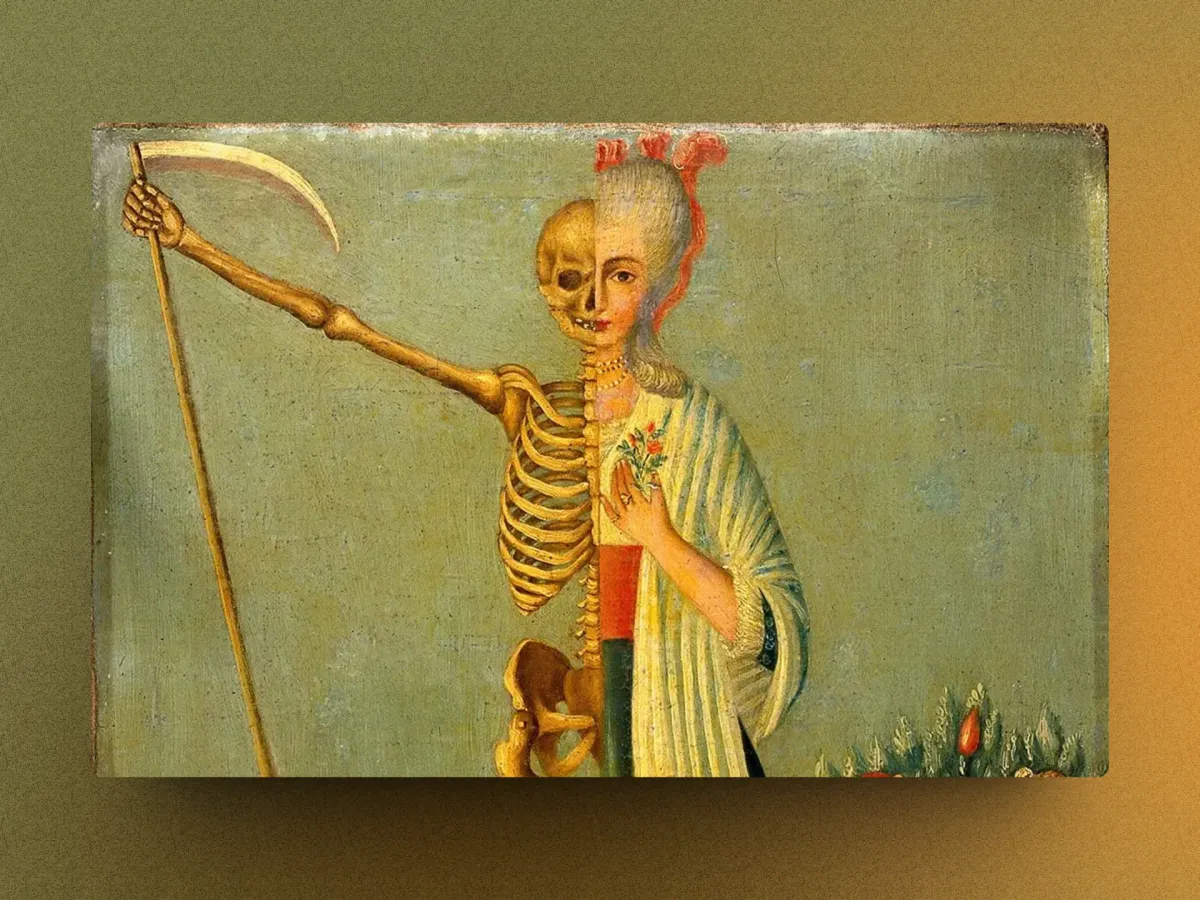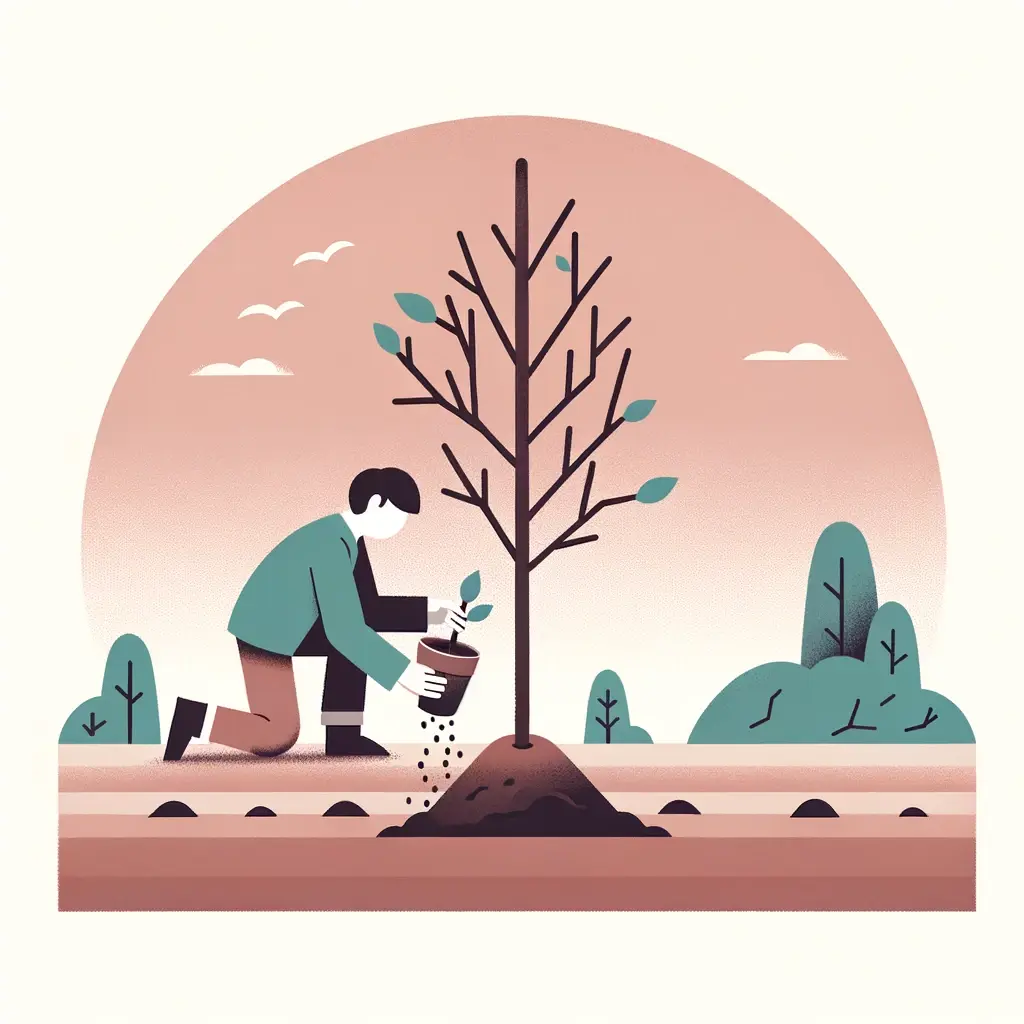Confronting Mortality: How Reflecting on Death Can Bring You Fully Alive

Our time here is finite. Yet we go through life mostly avoiding and denying this universal truth.
In this post, I'll explore how reflecting deeply on the reality of death can, paradoxically, help you live more fully and authentically. Contemplating mortality snaps us out of complacency, reveals life's preciousness, and liberates us to pursue our most meaningful goals.
This may sound morbid at first. But numerous ancient wisdom traditions, from the Stoics to the Aztecs, understood the power of meditating upon impermanence. Modern research has confirmed these benefits.
Facing death openly brings presence, perspective, urgency and motivation. By courageously confronting our mortality, we can stop sleepwalking and finally start living.
The Shock That Woke Me Up
My own journey with reflecting on death began seven years ago after reading a profound quote by Eckhart Tolle:
“The secret of life is to ‘die before you die’ and find that there is no death.”
This quote shook me. What did it mean to “die before you die”? Why did Tolle claim realizing this would reveal there is no death?
While cryptic at first, over time I began to understand. Most of us live mechanically, unconsciously, lost in thoughts of past and future. We identify so strongly with the roles and narratives we construct that our true essence remains hidden, even from ourselves.
But by meditating on death, the ego begins to loosen its grip. We stop taking each passing moment for granted. By fully accepting mortality, we wake up to the precious gift of being alive right now.
When the false self “dies”, our eternal nature is unveiled. Death loses its sting, and life becomes celebrated anew. We are reborn into the present moment.
After this realization, I became obsessed with books exploring death, impermanence, and how facing mortality impacts living fully. The daily Stoic ritual of “memento mori” called to me. I dove into existential philosophy.
Contemplating death and nonexistence seemed depressing at first. But over time, it awakened me to life’s urgency and sparked massive personal growth.
Here are 3 ways reflecting deeply on death transforms life for the better when done with courage and wisdom:

Death Reflection Brings Presence
Have you ever become aware mid-conversation that you weren't fully listening? Maybe you were distracted thinking about what to say next, planning your day, or worrying about some problem.
It's easy to go through life on autopilot, lost in thoughts of past and future while neglecting the present. We operate by habit, talking and acting from conditioning rather than conscious choice. As Mark Twain observed, “I've lived through some terrible things in my life, some of which actually happened."
Contemplating mortality brings awareness back to the fleeting aliveness of each moment. Facing death leads to feeling more fully alive.
Pondering impermanence makes you cherish the people and experiences before you right now. You become less caught up regretting the past or anxiously anticipating the future. Each breath gains poignancy.
There is a reason practices like mindfulness meditation have entered the mainstream. Bringing non-judgmental awareness to the transient present moment unburdens you to engage life directly.
But while mindfulness helps you appreciate today, meditating on mortality generates gratitude for every single moment. Fully accepting you will die keeps you deposited firmly in the here and now.

Death Reflection Provides Perspective
When you forget you have limited time, it’s easy to descend into complaining and victimhood. We take our privileges for granted and focus on trivial problems.
Known as “hedonic adaptation”, the tendency is to adapt to new levels of comfort and success quickly, thenredirect dissatisfaction outward. Appreciation gets replaced by entitlement.
Regularly confronting our impermanence offsets this adaptation by rekindling gratitude for simply being alive. Petty frustrations fade in light of life's fleetingness. We regain perspective.
Reminding yourself each day "this too shall pass" makes negative circumstances easier to process with wisdom and grace. Life's difficulties cannot disturb your equanimity when you accept their transience.
Meditating on mortality also strengthens resilience by highlighting what truly matters. Social status, material possessions, ego - none of these superficial pursuits endure. Legacy and relationships carry on once we depart.
When your days feel limited, you realign energy toward creating meaning, not chasing ephemeral pleasures that provide only fleeting satisfaction. Remembering you will die clarifies your priorities.

Death Reflection Fuels Purpose
We all have goals we want to achieve and contributions to make over the course of our lives. But it's easy to keep deferring action toward these aims - especially big, uncomfortable ones requiring great effort.
Why start today when there's always tomorrow, next week, next year? We can procrastinate indefinitely when subconsciously viewing time as unlimited. Our ambitions stagnate, never translating into concrete reality.
When you reflect each morning on having limited days left, procrastination morphs into initiative. With mortality staring you in the face, you snap into action on what matters most to you.
Every moment that passes without pursuing your purpose becomes exposed as a tragic waste you can never get back. Meditating on death dispels illusions of unlimited time to become who and what you aspire to.
Confronting mortality also helps dissolve ego-fueled fears holding you back, like worrying what others will think. Legacy ambitions crowd out smaller concerns about judgment or failure. A sense of courage arises.
Of course, reflecting on death shouldn't make you morose or nihilistic. It serves to unshackle you from conditioning so you can finally live boldly and deliberately, not constrained by trivial concerns.
Wrestling with mortality until it loses existential grip frees you to pursue your highest self no matter how challenging. The acceptance of death spawns resolve to live with purpose.
Overcoming Resistance to Mortality
Despite death being life’s only absolute certainty, our culture pretends it doesn’t exist. We treat aging as abnormal. Death gets sanitized and hidden away in hospitals.
Reluctance to confront impermanence is understandable. Mortality can trigger painful feelings like fear, denial, anger, depression, and anxiety. But avoiding it only magnifies suffering.
Here are 3 tips to overcome resistance and cultivate acceptance of death's inevitability:
- Start small. You don't have to dwell on death for hours. Begin with just 5-10 minutes of reflection in mornings. Find a level that feels challenging but manageable.
- Use supporting practices. Breathwork, meditation, journaling, yoga, and nature walks help balance and ground during exploration of mortality.
- Find community. Having wise teachers and mentors familiar with death practices creates a container for vulnerable work. Find people further along the path.
The goal is not to become morbidly obsessed. But disciplined, courageous confrontation of death for limited time daily powerfully shifts life perspective and priorities.
At first your mind resists with distraction and avoidance when mortality becomes the object of meditation. But embracing impermanence becomes easier with practice. You build spiritual muscle to sit with difficult truths.
Soon death reflection no longer evokes dread. It fosters liberation. You shed limiting beliefs and open to your highest human potential. Reflecting on death spawns passion for living.
In Summary
Life gains intensity and focus when you courageously confront its impermanence. Though we avoid acknowledging it, death remains your eternal companion and ultimate advisor.
Regularly meditating upon having limited time left brings presence, perspective, and purpose. It snaps you awake to life's preciousness. Complacency gets replaced by vision and initiative.
Reflecting deeply on mortality is challenging but profoundly transformative work. It pulls off the blinders so you can finally live aligned with your highest values and callings. Fully accepted, death no longer limits life but expands it.
This post only summarizes the immense power and nuance in making peace with mortality. If you feel called to explore further, many great teachers and communities exist to support those ready to wake up.
Of course, reflecting on death is not the sole practice one needs for living fully. But it uniquely dismantles conditioning, fuels passion, and brings forth your greatest aliveness. Confronting mortality delivers unparalleled clarity.
Life is a gift. Never forget you will die. Let this simple fact guide you each moment into presence, wisdom, and fearless action. Keep death ever at your side - and unlock the deepest vitality life offers.




